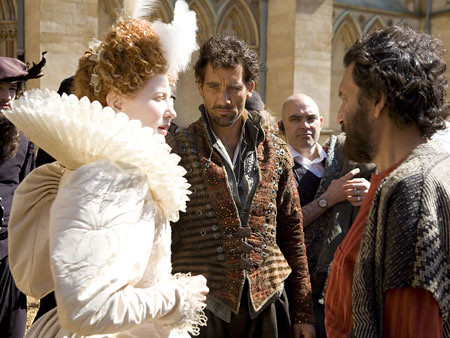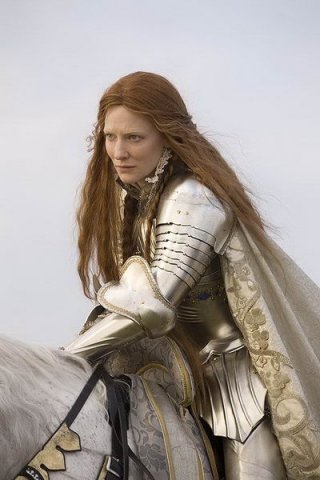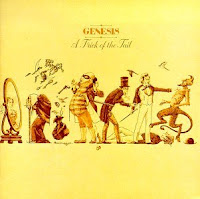Let’s talk a bit about an aspect of movies that is often not even really noticed, but which can make or break a story–the soundtrack.
Something of a tangent, but not entirely: last weekend I went to see Elizabeth: The Golden Age. I was really looking forward to it, since I liked the first Elizabeth film. The Elizabethan era is one of my very favorites. In grad school, I specialized in Elizabethan poetry, so I know that the history in that movie was, well, a big crock of almost total nonsense. I expected that would be true of The Golden Age, as well, and also that the costumes would be stupendous (if sometimes a bit silly–what was up with that gigantic flower??). I wasn’t disappointed by either. What I didn’t expect was that it would be something of a snooze-fest. It even made Mary Queen Scots and the Armada dull going, and even Clive Owen (looking quite yummy in his scruffy-explorer Walter Ralegh get-up) seemed to be sleep-walking through it all.
The first movie was highly suspenseful, dark, almost claustrophobic. It captured the danger of the times so well, and also the lavishness and the delicious bawdiness. Christopher Eccleston was an intensely menacing Duke of Norfolk; Cate Blanchett an astoundingly perfect queen (as she also was in TGA, though far too young-looking). That tension was lacking in this new film. It gave me way too much time to eat my Sour Patch Kids and ponder such stream-of-consciousness matters as–“Why does Phillip II persist in giggling constantly? Why does he only have such lame lines as “What of the Jesuit?” And which one is the Jesuit anyway? Rhys Ifans? Or that crazy kid who looks like a Calvin Klein underwear model? No, I think he’s supposed to be Babington. Maybe. Why get an actress of Samantha Morton’s caliber to play Mary Queen of Scots if they’re not really going to use her? She should star in her own movie. Mary: Age of Extreme Foolishness. I would definitely go see that. She’d have to lose that weird Scottish accent, though, and sound French like she’s supposed to. Wow, I do like that gown Abbie Cornish is wearing. Wonder where I could get one?”
Anyway, the point of all this is that there were a few scenes I liked. The one where the crazy underwear model tries to shoot Elizabeth; Mary’s execution; the one where the storm that will destroy the Armada (not, as the movie would have us believe, Clive Owen) is brewing, and Elizabeth walks out on a cliff in a flowing white chemise. Oh, and the Volte dance bit. I do love bits with dances. Those scenes had a power lacking in much else, and one of the important reasons was the very effective use of music.
Another movie that did this very well was Marie Antoinette. I liked it despite the very bad screenplay and the less-than-stellar acting because, aside from looking gorgeous, it sounded weirdly great. The montage of life at Versailles set to Vivaldi; the masked ball where dancers twirl around to Hong Kong Garden. Terrific, if also very, very odd.
I like to set my books to soundtracks, too. This is a great way to waste time not writing while also feeling like I am doing something productive for my creative process. My current WIP is the second in my “Muses of Mayfair” series, Clio’s story, set in Sicily in 1818. Here are a few songs I’ve found for it:
1) Albinoni’s Adagio
2) Dave Matthews Band, Crash
3) Mozart, Der Holle Rache (the Queen of the Night’s second aria), The Magic Flute
4) Nickelback, Rock Star (I’m usually contemptuous of Nickelback, I admit, but this one has a Big Dumb Fun infectiousness, much like that “tell me what you want what you really really want” Spice Girls song. Maybe I should include that one, too)
5) The Cure, Pictures of You
6) BowWowWow, Aphrodisiac (stolen from the Marie Antoinette soundtrack, which I like to listen to when on the treadmill)
7) Mascagni, Intermezzo sinfonico from Cavalleria Rusticana
I need something for a skinny-dipping scene, too, if anyone has any ideas…
If you did a soundtrack for your own WIP, or your favorite book, what would it include? Anyone seen any good movies lately???








